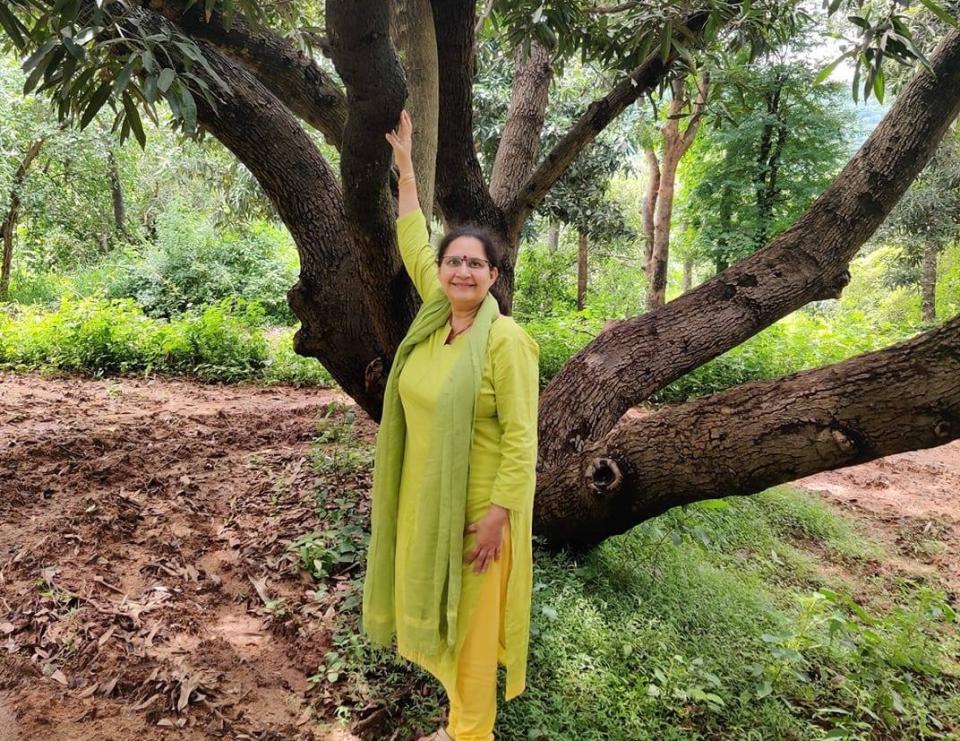Organic farming in India: 3 women agripreneurs who are making a change
Research shows that since about 10,000 B.C, women have played a part in how we source and harvest our food.
The number of female farmers surged during the 1940s, as men went off to fight in the World War II.
The Economic Survey 2017-18 says that in modern times, there is an increasing number of women in multiple roles as cultivators, entrepreneurs and labourers. Globally, there is empirical evidence that women have a decisive role in ensuring food security and preserving local agro-biodiversity. The reason being that rural women are responsible for the integrated management and use of diverse natural resources to meet the daily household needs.
In India, though women contribute significantly to farm incomes, they have long been an invisible force. At least 33% of the primary workers on farms are women, says the last census. They contribute significantly as entrepreneurs too. For example, women’s participation as self-employed entrepreneurs in agriculture-allied sectors is about 25% in forestry, 20% in plantation, 63% in animal husbandry, 14% in fisheries, and 25% in others.
A positive impact of Covid-19 is that several women and aspiring agripreneurs are returning to their villages to make significant positive change in the farm economy.
Seema Deokar
Since 11 decades, Deokar Farming & Products, (http://www.deokarfarming.com) a business owned and run by the Deokar family based in Washim (Maharashtra), has been committed to enhancing agriculture-based livelihoods. Today, the venture is spearheaded by a woman - Seema Deokar.
In 2013, she and her family decided to take up natural farming just to save the money on fertiliser and pesticide. She started to post videos and photos of her farm on social media and soon started getting enquiries for her farm produce.

Seema says, “Our customers liked the raw produce and our quality so we started selling produce directly to them with no involvement of local mandi agents, commission middlemen, etc. Later customers requested us to get certification for an acknowledgement of the product. That’s when our final journey started towards organic farming.” Her vision is to show farmers how organic farming can become profitable in the future.
Deokar Farms mainly produces grains such as Moong (Green gram), Soybean, Chickpeas, Black gram, Pigeon peas (Tur/Arhar), Turmeric, Wheat, some vegetables like chilli and tomato. All whole products are certified under APEDA’s National Programme for Organic Production (NPOP) certification system.
Gauri Sarin
Women who take up farming often do so through the support of other female farmers. They create and are part of organisations and communities that assist women in all things farming. This allows them to network, seek advice and make friendships. Bhumijaa (http://bhumijaa.org) is a platform bringing women in agriculture together to co-learn, collaborate and grow an ecosystem of sustainable farming and agripreneurship.
Gauri Sarin, founder of Bhumijaa says, “Women and also men are increasingly getting attracted to nature and eco living. Many of them already have land inherited from their ancestors. So, not only are they looking to break away from urban life, they are also taking farming up as a second career. The Covid-19 pandemic has given a fillip to this. Women are driving the Healthy living movement. Lot of women who are not working fulltime are exploring food through Social Media channels. They are increasingly concerned about what they are feeding their families.”

The Bhumijaa Model which includes the Bhumijaa Agripreneurship Program (BAP) and Bhumijaa Market Solutions (BMS) plans to train and equip a WA (Woman Agripreneur) from ideation to implementation stage to successfully run her venture and simultaneously connect her to a growing market place, in which Bhumijaa will play a major role.
Bhumijaa aims to develop 1000 women agripreneurs by 2021. These in turn will create ripple effects in entrepreneurship in agriculture nationally, boosting sustainable agriculture practices, enhanced rural incomes, and healthier citizens.
Gauri feels that the government and the private sector could play an important role in strengthening women-led agripreneurship. The Ministry of Agriculture needs to build on the special provisions its offers for women farmers under various national schemes.
Dr Shruti Malhotra
Several trends in women-led agribusinesses point to the opportunity to create a greater impact on agriculture productivity and farm incomes by encouraging agripreneurship.
Urban farming initiatives led by women is another trend that is being increasingly seen as a sustainable route to providing locally sourced (and therefore, healthier) food to urban markets.

Three years ago, Shruti Malhotra, a dentist by profession shifted her focus to micro greens. When she analysed global trends in various developed countries, it showed a very pronounced usage of microgreens by households. But in India its usage was and still is, limited to high end restaurants mainly as garnish. Shruti recalls, “Identifying the opportunity, I started it mainly as a B2B business. These microgreens are a powerhouse of nutrition and taste and there is a growing market for them.”
Her company Little Giant (thelittlegiant.business.site) now grows and supplies all types of microgreens and edible flowers to high end hotels and restaurants. The company is FSSAI certified. Recently, Shruti introduced DIY microgreen kits for urban consumers as well.

 Yahoo Sports
Yahoo Sports 